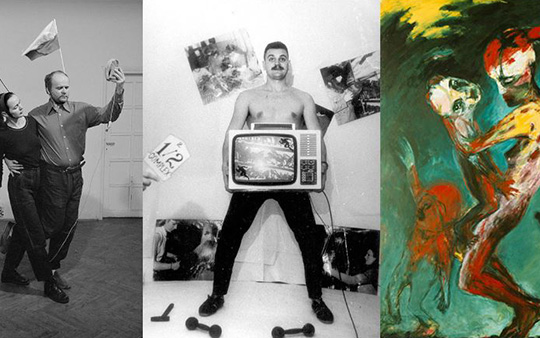Gender Politics and Art
Research Seminar “Gender Politics and Art of European Socialist States” is part of the Getty Fondation program Connecting Art Histories. The traveling seminar project is hosted by Adam Mickiewicz University in Poznań. Senior Researcher from Croatia is Ljiljana Kolešnik with teaching Assistant Sanja Horvatinčić.
-
The seminar “Gender Politics and Art of European Socialist States” consists of three one-week meetings in three locations: Poland, Croatia and Romania.
First seminar was held in September 2019 in Poznań at the Adam Mickiewicz University, the second will be held in January 2020 in Zagreb at the Institute of Art History, while the third will be hosted by the West University of Timișoara in May 2020.
All the seminar meetings will be co-taught by three senior researchers – Agata Jakubowska (Adam Mickiewicz University, Poznań, Poland), Ljiljana Kolešnik (Institute of Art History, Zagreb), Ileana Pintilie Teleagă (West University of Timișoara), with the help of their teaching assistants (Luiza Kempińska, Sanja Horvatinčić and Maria Orosan-Telea).
The seminar will cover the period between 1945–1989. The “Gender Politics and Art” formulation refers to our interest in relationships between the visual arts and various discourses related to gender that circulated in socialist states, including debates about education, sexuality, architecture, health, state security, etc., all of which contributed to how gender roles were conceptualized. The seminar will focus on the way artists addressed, examined, and questioned the socio-political construction of gender (masculinity and femininity) and heteronormativity. It will also examine how private lives and intimacy were regulated by communist governments as well as the ideas of home and family propagated by communist governments, but also supported by national and religious traditions, along with gender relations in education and the workplace. It will also offer a study on the way feminist art (history) discourse functioned in communist countries and how it manifested itself in individual works and women’s collective action.
Each one-week meeting will comprise a varied set of activities: lectures, discussions of the readings (and, possibly, documentary films), presentations of the participants’ research, meetings with faculties from the host institutions and study visits to galleries, museums, and artists’ studios. Guest speakers are invited to deliver single lectures open to the public. Each guest session consists of presentations by two guest speakers from different countries, including those from East-Central Europe, South America, Asia and Africa.
More detailed information about the program find here.
-
Contact:
Liljana Kolešnik
Sanja Horvatinčić
